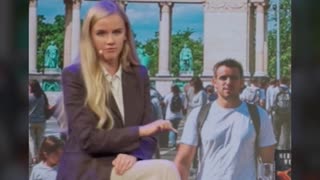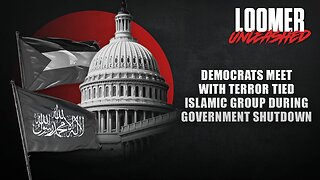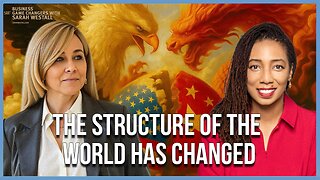Premium Only Content

Did the right actually win in Bolivia?
Did the Right Really Win in Bolivia?
Bolivia is heading into a presidential runoff for the first time since its return to democracy in 1982, after voters rejected for the first time in two decades a candidate from Evo Morales’ Movement for Socialism (MAS). This marks a historic shift, as the MAS has dominated Bolivian politics for twenty years. Many celebrated the outcome as a victory for the right, but the picture is more complex.
Among the two candidates advancing to the second round, neither can be clearly labeled as traditionally right-wing. Rodrigo Paz Pereira, son of former president Jaime Paz Zamora, is seen as a centrist reformer rather than a conservative. Although his roots lie in the Revolutionary Left Movement (MIR), a historic center-left party that gradually moved toward moderation, he is now aligned with the Christian Democratic Party (PDC), a centrist to center-right force grounded in Christian democracy. Paz presents himself as a moderate voice, advocating “capitalism for all,” reform, transparency, and inclusivity. His candidacy has attracted support from disillusioned MAS voters as well as parts of the right seeking a less polarizing figure.
On the other side is Jorge “Tuto” Quiroga, a former president who more openly embraces liberal economic policies. He leads the Libre alliance (Liberty and Democracy), made up of the Revolutionary Left Front (FRI)—a group that began on the left but has since shifted to a populist center-right orientation—and the Social Democratic Movement. Quiroga advocates for structural reforms, partial privatization of natural resources such as lithium, and stronger trade ties with the United States. His platform is more clearly identified with traditional right-wing liberalism and pro-market policies.
The ideological landscape, however, is blurred. Rodrigo Paz cannot be described as a classic leftist, but neither is he fully right-wing. His centrist positioning contrasts with Quiroga’s more overtly liberal program. Both, in different ways, symbolize the exhaustion of the MAS era and the desire for change.
Therefore, it would be misleading to say that the right has decisively won. What has truly happened is the collapse of the MAS monopoly, giving way to a contest between a centrist reformer with leftist origins and a traditional liberal conservative. The final outcome of the runoff on October 19 will depend on how voters weigh these nuances, reflecting not a simple right-left shift, but a more complex realignment in Bolivia’s political spectrum.
-
 0:55
0:55
Gateway Hispanic
1 day agoEva Vlaardingerbroek: There hasn’t been a single positive aspect to mass immigration Zero. None!
40 -
 2:04:24
2:04:24
FreshandFit
12 hours agoGianni Blu Meets 305
222K10 -
 2:37:35
2:37:35
Badlands Media
14 hours agoDEFCON ZERQ Ep. 014: Marker Nine – The Ninth War Is Coming
73.7K75 -
 2:10:43
2:10:43
Inverted World Live
10 hours agoTop General Outsourcing Decisions to ChatGPT | Ep. 127
90.7K10 -
 2:46:27
2:46:27
Laura Loomer
9 hours agoEP151: Democrats Meet With Terror Tied Islamic Group During Government Shutdown
29.8K23 -
 3:02:06
3:02:06
TimcastIRL
9 hours agoPortland Police PROTECT Antifa From DHS Arrest, Trump Admin Says SEND IN THE GUARD | Timcast IRL
232K133 -
 2:49:50
2:49:50
Barry Cunningham
8 hours agoPRESIDENT TRUMP SPEAKS TO THE PRESS...NO DEALS! DO YOU CARE IF THE GOVERNMENT STAYS SHUT DOWN?
47.8K39 -
 1:37:24
1:37:24
Tundra Tactical
6 hours ago $19.32 earned🚨🚨Emergency Gun News!!!!🚨🚨 Did Glock Just Cave To Liberal Pressure?? Current Glocks Done?
34.6K4 -
 1:02:57
1:02:57
Sarah Westall
10 hours agoStructure of the World has Changed and Getting Back to Basics w/ Stacy Washington
50.3K12 -
 6:34
6:34
Buddy Brown
12 hours ago $11.33 earnedWatch What Happens When WELFARE QUEENS Get Denied FOOD STAMPS! | Buddy Brown
42.7K28